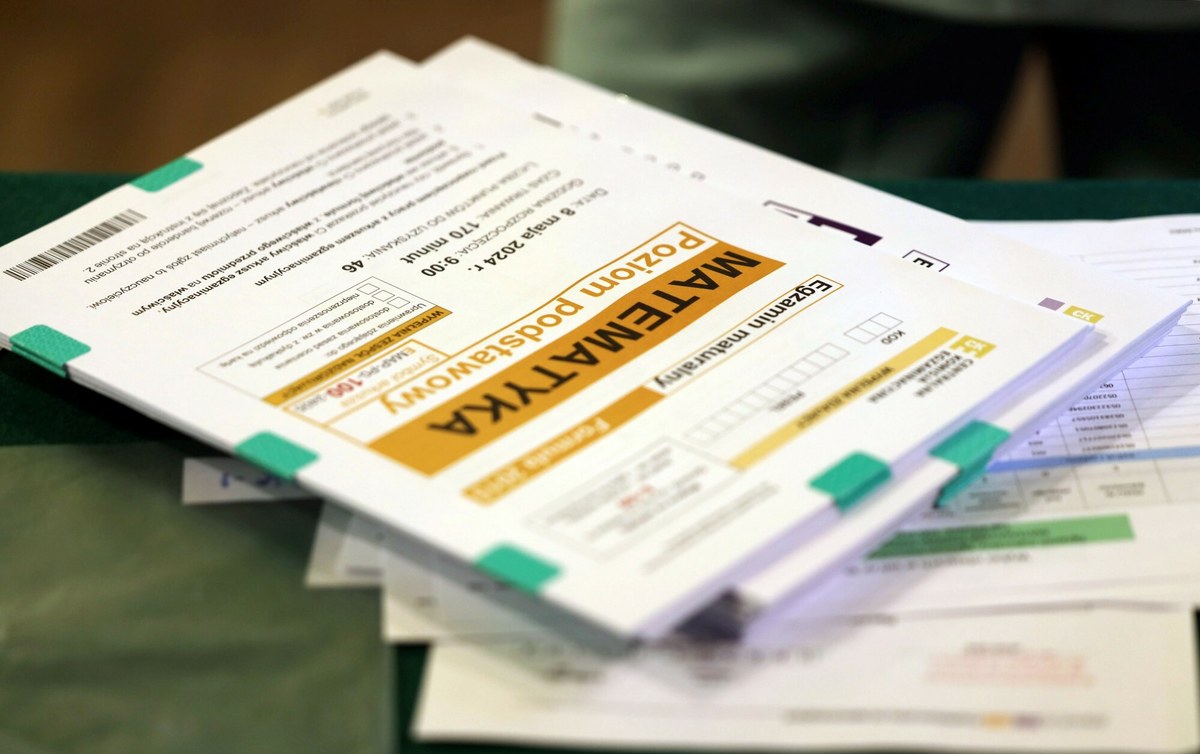
Piotr Witakowski
Sovereignty of the Republic according to the Public Prosecutor's Office
1. Crime v. THE REPUBLIC
The Defence Resolution adopted in the European Parliament on 12 March [1] takes over the Republic of Poland's sovereignty in this area. This is another act of the European Parliament against Polish sovereignty. In November 2023, thanks to the votes of 9 Polish MEPs, the European Parliament passed a resolution depriving the Republic of Poland of sovereignty in many areas. Therefore, a fewer days later, I sent an article to many people and institutions entitled “Crime against the Republic of PolandIt’s okay. ” Below is its content.
Crime against the Republic of Poland
A vote was held in the European Parliament in Strasbourg on the motion for a resolution entitled "European Parliament proposals to amend the Treaties‘ [2]. The resolution calls for the introduction of 267 amendments to the Lisbon Treaty which radically alter the powers of the associate States, including the Republic of Poland. He calls for a crucial limitation of the independency of the Republic of Poland by giving the right to decide in many aspects of social, economical and political life to the unelected bodies of the European Union. The provisions of this resolution so constitute interference in the constitutional rights of the Polish parliamentary authorities and the Government of the Republic.
9 Euro MPs elected in Poland voted for specified a truncation of the sovereignty and independency of the Republic. These included: Marek Balt, Marek Belka, Robert Biedron, Włodzimierz Cimoszewicz, Łukasz Kohut, Bogusław Liberadzki, Leszek Miller, Róża Thun und Hohenstein and Sylvia Spurek [3]. The resolution was adopted by a majority of 17 votes (291 votes in favour, 274 against and 44 abstentions). It would so be rejected if these 9 Polish parliamentarians voted against.
The events in the European Parliament are an analogy to the 1773 dismemberment parliament. As of the beginning of August 1772, Russian, Prussian and Austrian troops entered the territory of Poland at the same time and began the business of territories between themselves. However, the occupiers were not satisfied with the territorial conquests themselves, but they wanted that the demolition of the Republic already carried out was accepted and approved by the Sejm of the Republic. By bribing any of the MPs and terrorizing the remainder of the occupiers, they obtained the desired mark at the partitioning parliament in 1773. According to the occupiers' narrative, Poland was to benefit a lot. External safety was to supply the occupying powers. They besides guaranteed “Cardinal Laws”, and in their view the order was restored and
"anarchy has been abolished". This is now referred to as "restore the regulation of law". The Republic of Poland has not been completely liquidated. 2 more cuts were needed. But she lost the essential attribute of independency – she agreed that her destiny should be decided not in Warsaw, but in St. Petersburg, Vienna and Berlin. Now the “benefit of the Republic” is that it will be decided in Brussels and Berlin. The warrant of the regulation of law after I dismemberment was to be the Tsarica Catherine, the warrant of the regulation of law following the adoption of the European Parliament resolution to be the European Commission.
The moral assessment of Polish representatives voting in favour of limiting the independency of Poland is clear and is usually referred to as renegade or traitors. However, the legal qualification of their actions is important. In order to do so it is essential to callback the penal code in force in Poland [4]. In Chapter XVII entitled Crimes against the Republic of Poland the first 3 articles are worded as follows.
Article 127. § 1. Who, with the aim of depriving independence, depriving part of the area or changing the constitutional strategy of the Republic of Poland, undertakes, in consultation with another persons, activities aimed straight at achieving this objective, is sentenced to imprisonment for periods not little than 10 years or to life imprisonment.
§ 2. Who makes preparations for the offence referred to in § 1, is sentenced to imprisonment from 3 to 20.
Article 128. § 1. Who, in order to remove the force of the constitutional body of the Republic of Poland, undertakes activities aimed straight at achieving this nonsubjective is sentenced to imprisonment from 3 to 20.
§ 2. Who makes preparations for the offence referred to in § 1, is sentenced to imprisonment from 3 months to 5 years.
the Republic of Poland, is sentenced to imprisonment from 1 year to 10 years.
Article 129. Who, being authorized to act on behalf of the Republic of Poland in relations with the government of a abroad state or abroad organization, acts against the Republic of Poland, is sentenced to imprisonment from 1 year to 10 years.
The work carried out by the 9 Euro MPs afraid fulfils the conditions set out in Article 127(1) and Article 129. It needs to be stressed that the act was committed under the conditions of recidivism. All these Euro MPs voted against Poland countless times. Nevertheless, they inactive represent Poland in the European Parliament and enjoy full civilian rights. The penal code provides for the anticipation to end specified harmful activities, as Article 40 KK says.
Article 40. § 1. Depriving of public rights includes the failure of active and passive electoral rights to a public authority, a professional or economical authority, the failure of the right to participate in the exercise of justice and to service in public authorities and institutions and local or professional self-government, as well as the failure of a military degree and return to a serial degree; the deprivation of public rights besides includes the failure of orders, honours and titles and the failure of the ability to get them during the period of deprivation of rights.
§ 2. The court may order the deprivation of public rights in the event of conviction:
1. for imprisonment for a time not little than 3 years for a crime committed as a consequence of a motivation worthy of peculiar condemnation;
There is no uncertainty that the activity aimed at reducing the sovereignty and independency of the Republic deserves peculiar condemnation. It is so amazing why specified harmful anti-Polish activities have not so far met with the reaction of any state authority obliged to defend the state and the applicable legal order. Since the institutions are silent, possibly it is time for the citizens of the Republic to talk on this matter.
Warsaw, 30 November 2023.
***
Therefore an incredible attack on our sovereignty and independency The country in a short flagship letter addressed to the recipients of my article was asked: “What needs to be done to get the institutions committed to defending her active ? “
A lot of answers came to the article, a large part of which demanded to notify the prosecution of the crime. Organisation CitizenGo Poland proposed to make a petition on its platform on this matter. In accordance with this proposal I prepared for the portal Citizen petition to the National Prosecutor's Office on the following content.
2. possible RIGHTS DELIVERED
Petition Their right to represent Poland in the European Parliament must be stripped To the National Prosecutor's Office On 22 November 2023, by vote on the resolution "European Parliament proposals to amend the TreatiesIn the European Parliament, 9 MEPs representing Poland voted to partially deprive the Republic of Poland of independency and sovereignty. In accordance with the resolution, this is to be done by depriving the elected authorities of the Republic of Poland of their constitutional powers and the transfer of these powers to non-elected authorities of the European Union by Poles. The actions performed by Marek Balt, Marek Belka, Robert Biedron, Włodzimierz Cimoszewicz, Łukasz Kohut, Bogusław Liberadzki, Leszek Miller, Róża Thun und Hohenstein and Sylwia Spurek constitute a criminal offence against the Republic of Poland provided for in the Criminal Code in Article 127 and Article 129. We believe that, erstwhile they opposed the independency of the Republic of Poland, the Euro MPs were disgraced and lost their right to represent the Republic in the European Parliament. We call on the National Prosecutor's Office to put these Euro MPs indicted and to demand, in accordance with Article 40 of the Criminal Code, the deprivation of their public rights. This will prevent them from representing Poland in the European Parliament and further damaging the Republic of Poland. |
 |  |
| Figure 1. Letter from the National Prosecutor's Office dated 11.01.2024. | Fig. 2. Letter from the territory Prosecutor's Office in Warsaw dated 18.01.2024. |
The territory Attorney’s Office, on the another hand, told me "Notification‘ dated 01.02.2024 (Figure 3).

W Notification The most crucial is the operative part, which is the refusal to open an investigation.
"The Secretary of the territory Prosecutor's Office of Warsaw-Mokotów informs that the decision of 21 December 2023 refused to initiate an investigation into the harm to the Republic of Poland on 22 November 2023 in Brussels by persons authorised to act on behalf of the Republic of Poland in relations with a abroad organisation – the European Union in the form of established Members of the European Parliament, by voting in favour of the motion for a resolution "The European Parliament's motion to amend the Treaties", which was acted in order to limit the sovereignty and independency of the Republic of Poland, i.e. to act with Article 129 k.k., on the basis of Article 17 § 1 point 2 k.k., in view of the uncovering that the act does not contain the prohibited effects". |
Special attention should be paid in the announcement 3 of the last line of reasoning – "measures were taken to reduce sovereignty and independence", but ‘the act does not contain any sign of a prohibited act’.
The legal basis for refusing to initiate an investigation, i.e. Article 17(1)(2) of the Code, is as follows [4]:
‘No proceedings shall be initiated and the action taken shall be terminated if the act does not contain any sign of a prohibited act or the act provides that the offender shall not commit the offenceIt’s okay. ” The territory Prosecutor’s Office justifies refusing to initiate an investigation by stating that, in its view, the action ‘to reduce sovereignty and independence“ does not bear any sign of a forbidden act. This message by the territory Attorney's Office is clearly contrary to the wording of Articles 127 and 129 of the Criminal Code.
1. NOTIFICATION OF THE Crime
At the same time as the territory Attorney's Office made its own interpretations of 2 articles of the Criminal Code, it continued to collect signatures under petition on the portal CitizenGo Polandto comply with Article 40
K.K. deprive 9 MEPs of public rights and the right to represent Poland in the European Parliament. On 19 January 2024, the National Prosecutor's Office received a notification of a suspected crime, accompanied by the contents of the petition and the name list of 1282 of its current signatories indicating the website on which the subsequent petition signatures were attached. A copy of the announcement together with the aforementioned list was besides sent to the president of the Republic of Poland Andrzej Duda. In response, the Department of Preparatory Procedure of the National Prosecutor's Office informed me by letter dated 19 February 2024 (Figure 4that he referred the case ‘for further action“ to the territory Attorney’s Office in Warsaw, and this 1 in turn by letter dated 28 February 2024 (Figure 5) informed me that she had referred the case “for further action” to the Warsaw-Mokot territory Attorney’s Office.
 |  |
| Figure 4. Letter from the National Prosecutor's Office of 19.02.2024. | Figure 5. Letter from the territory Attorney's Office of 28.02.2024 |
However, she took water in her mouth and never informed me of her actions. Also, the President's Office never showed any trace of interest in the case.
1. CONCLUSION
The designation by the territory Prosecutor's Office of Warsaw-Mokotów that "action to limit sovereignty and independency does not contain any sign of a prohibited act’ shocks and raises objections to the sharp contradiction with Article 127 and Article 129 K.K. By its decision, the territory Prosecutor's Office of Warsaw-Mokotów sanctions action to limit sovereignty. The 2 K.K. articles mentioned above supply for a life conviction or 10 years in prison for specified an action, and so this is simply a crime classified as a crime.
The President's Chancellery besides amazes me. In accordance with Article 126(2) of the Constitution of the Republic of Poland “The president of the Republic shall guarantee that the Constitution is observed, he shall safeguard the sovereignty and safety of the State and the integrity and indivisibility of its territory.It’s okay. ” Even erstwhile the Prosecutor’s Office states that we are dealing with "with action to reduce sovereignty“ The silence of the President, who according to the Constitution is the highest typical of the Republic of Poland and the guarantor of the continuity of state power, is completely incomprehensible. We are not dealing with a common crime, but with a crime committed by persons “authorised to act on behalf of the Republic of Poland in relations with the government of a abroad country or abroad organisation” (Art. 129. K. K.).
The refusal to punish these representatives of the Republic acting against it has had disastrous consequences. Active ‘to limit sovereignty“ they again ran for the European Parliament in elections held on 9 June 2024 and 2 of them, Robert Biedron and Łukasz Kohut, were re-elected to the EP. The fact that they were not punished with deprivation of public rights for action "to limit sovereignty“ He allowed them to run, and the deficiency of cognition of voters about their fulfilment of the qualifications of the acts set out in K.K. allowed them to choose them.
We are now witnessing further action by MEPs representing the Republic of Poland, which leads to the failure of sovereignty. The unpunished crime of 2023 has tragic consequences and the same question must be put again: "What needs to be done to enable institutions obliged to defend the Republic? “
Bibliographic footnotes
[1] https://www.europarl.europa.eu/doceo/document/TA-10-2025-0034_EN.pdf
[2] https://www.europarl.europa.eu/plenary/en/votes.html?tab=votes
[3] The results of the roll-call votes are given on https://www.europarl.europa.eu/doceo/document/PV-9- 2023-11-22-RCV_EN.html
[4] REGULATION of 6 June 1997. Criminal Code as amended by OJ 1997 No 88, item 553














